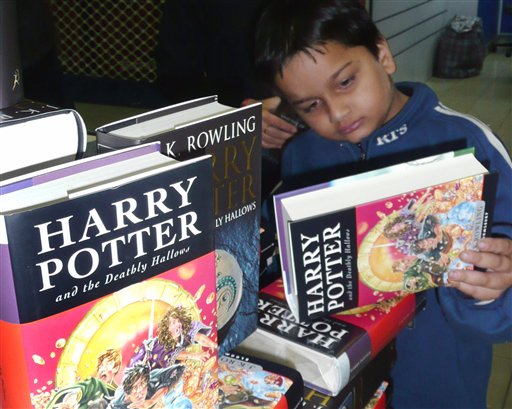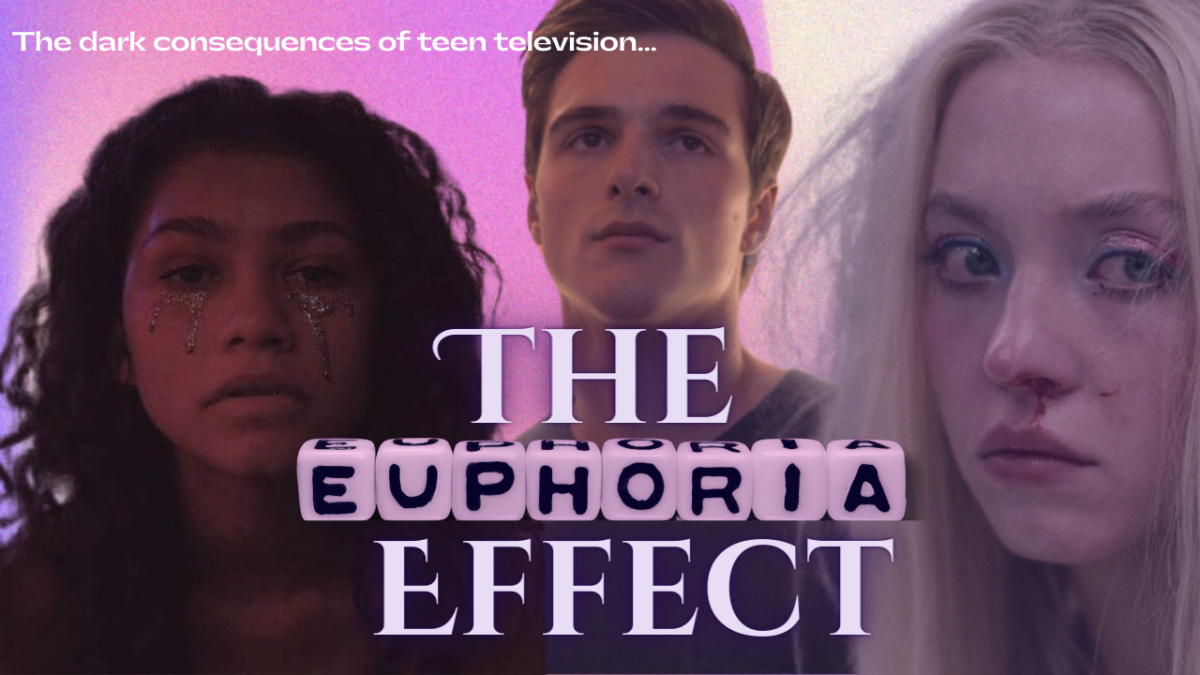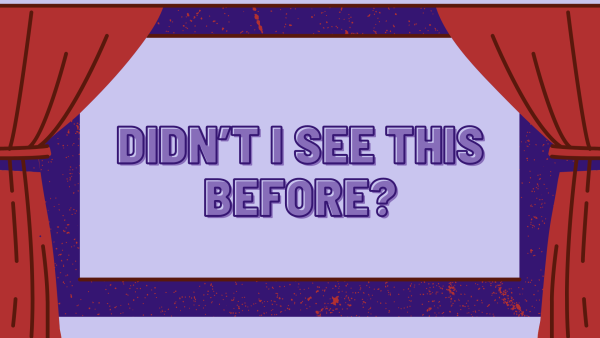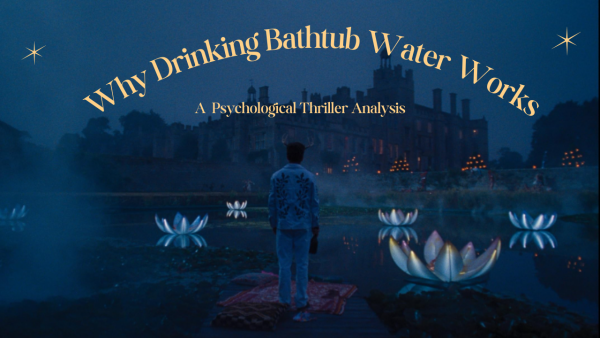Editorial: The books that will be remembered today as classics, aren’t just one book

A Kenyan boy selects his book in the Harry Potter series, entitled ‘Harry Potter and the Deathly Hallows’, in a book store as they go on sale in Nairobi, Kenya, Saturday, July 21, 2007.(AP Photo/Sayyid Azim)
November 2, 2016
We are all familiar with novels such as The Catcher in the Rye, or The Great Gatsby, classic books that defined their generation of literature through capturing a specific idea. Throughout the years, they have become renowned classics and the great pieces of the literary community, being taught in schools and known around the world. However, they were always just one book. Today, the top novels we hear about are usually a series rather just a standalone story. Works like A Song of Ice and Fire, Harry Potter, and The Hunger Games are beloved pieces of fiction and have each made millions of dollars through TV shows and movies. With so much positive feedback, it’s rather safe to say that these books will be remembered and as time continues their greater series may also be labeled as classics.
What is a classic to begin with? We’ve all heard the word before, but what does a book need to be in order for it to be a classic? In order for a book to be considered a classic, it has to be relatable, well written, thematic, and stand the test of time. We read books like ATale of Two Cities and Les Miserable for those exact reasons. Even though they were written over a hundred years ago, we still read them today and still apply their themes to our everyday lives. Regardless of whose reading them, the stories that these books convey can be understood by everyone. Take Ken Kesey’s One Flew Over the Cuckoo’s Nest for example. Most of the readers have never been committed to a mental intuition, but by no means does that lessen their understanding of the idea of individuality the novel expresses. For a book be a classic, it doesn’t matter who the characters are, what the setting is, or how the conflict is resolved. Classics make people think about the larger world around them, and it changes them after they finished reading.
However, with new and interesting plots starting to grab the attention of readers, can today’s novels even be considered thematically driven? The answer is yes. While it’s true that modern authors are trying their best to make original plots and setting, this practice is no different from any piece of literature in decades past. Do you think that anyone had a plot or setting quite like 1984 or Brave New World for that matter?
Some people believe that books written today are focused entirely on plot, instead of being driven by themes. They think that the author’s sole purpose in writing is to entertain, when in fact they couldn’t be more wrong. Themes are still overflowing through the books line store shelves. Take George R.R. Martin’s A Game of Thrones and its larger series, A Song of Ice and Fire. Even though plot is a big part of the experience, it is not the book’s only focus. The entire story hinges on the two major themes of honor and perspective. Through every character’s story arch, we see examples of these ideas being tested and how could react. The series makes us question whether or not the losing side in history was really evil. Even after we close the book, we are still thinking what we read.
For many modern series, the themes survive through all of books, and not once do they ever show signs of failing. To say that books nowadays focus entirely on plot is to say that books of the past did as well. The only reason we think older books are more theme driven is because we spend weeks or even months talking about them and construct entire curriculums around them. In many ways, literature of today is quite similar to what it was one hundred years ago. The only difference is that now authors craft expansive universes rather than just a single tale.
As Stephen King once said, “fiction is the truth hidden in the lie.” Of course novels will have a plot, they always have and always will. The whole purpose of a novel is to convey an idea through a story. However, just as it was in the past, plot and characters are simply an avenue for the author to say what they deem important. It matters not what genre. The best novels can change the world, which is why there is a Nobel Prize for literature. The only differences between book series of today from the classics we read in school is length and age. Given time, the great series of our day will be remembered as literary classics.



















